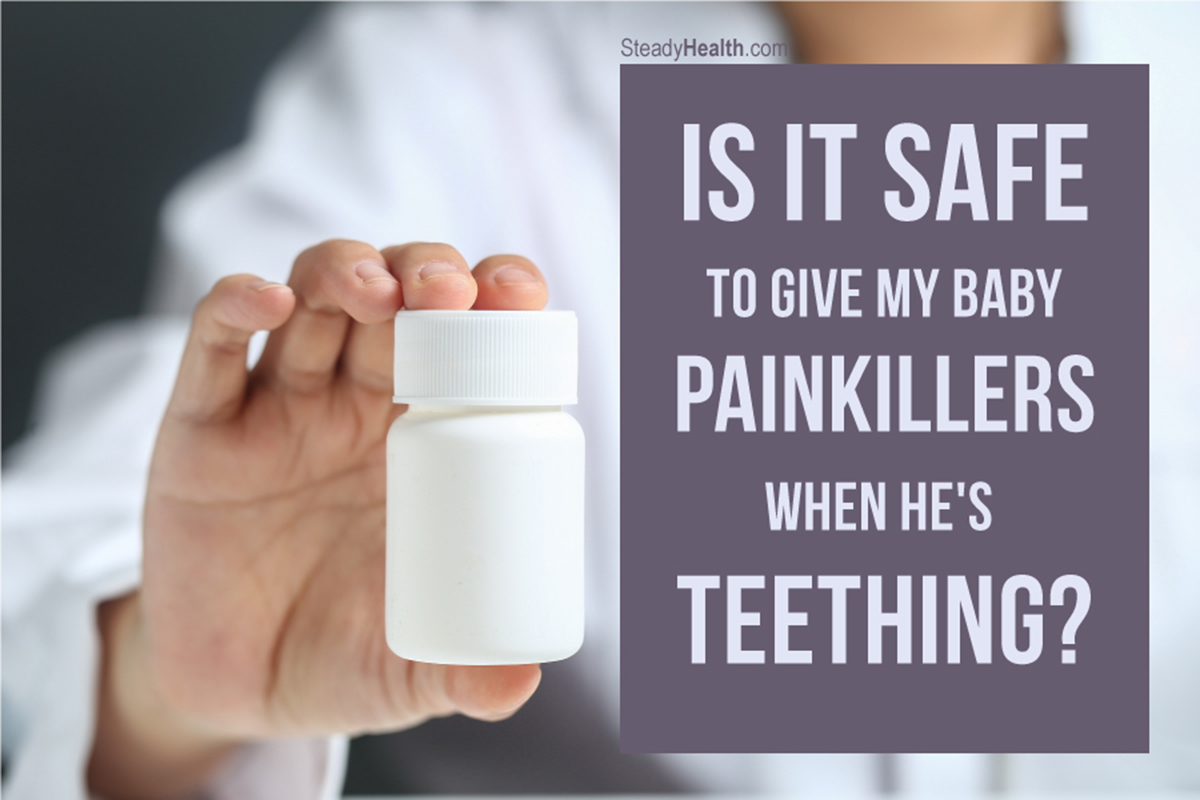Tooth buds start to develop while your baby is still in the womb [1]. When the baby is approximately six months old, her teeth start pushing through the gums. The gums become swollen and sensitive, which will make most babies fussy and irritable. Pressure can ease a lot of the discomfort — this is why babies tend to bring anything that they can to the mouth.
Yes — teething indeed upsets some babies, while others don’t seem that bothered. I get it, your baby is delicate and you feel sorry that he might be even in the slightest pain, so you want to solve it as soon as possible. But just because our kids are going through some discomfort, there’s no need to rush to the pharmacy to get those painkillers.

Paracetamol And Ibuprofen For Teething Pain
If your baby looks like he’s in pain, you may want to give him a painkiller that's made specifically for babies and young children. These medications have a small dose of paracetamol (in the US known as acetaminophen or Tylenol) or ibuprofen. Read the instructions carefully before giving the medicine to the baby, or speak to your pediatrician first.
It’s not recommended to give your child paracetamol and ibuprofen at the same time, or to switch between them. Even though much more research is needed when it comes to the safety of common painkillers, it should be common knowledge that frequent and unnecessary use of either paracetamol or ibuprofen should be avoided. Experts suggest that parents should use the minimum treatment necessary. [2]
Safety Of Painkillers In The Treatment Of Teething Pain
Paracetamol and ibuprofen are considered relatively safe for treating teething pain and fever in babies. They’re both available in a liquid form for small children.
According to studies, ibuprofen (4-10 mg/kg) and paracetamol (7-15 mg/kg) have similar efficacy and are equally safe in the treatment of moderate to severe pain in children, with a slight advantage given to ibuprofen. The choice will depend on a patient’s own preference, a doctor’s prescription habits and — most importantly — a patient’s medical history and possible side effects. [4, 5]
Researchers have found that long-term use of acetaminophen during pregnancy (22 to 28 days) can be associated with attention-deficit/hyperactivity disorder (ADHD) in offspring, so I guess the long-term use for teething pain would have a similar effect. Short-term maternal use was negatively associated with ADHD in children. [8]
Painkillers That Should Be Avoided Completely
Medicines containing aspirin (brand names such as Bayer, Bufferin, Excedrin, etc) should be completely avoided if a person is younger than 19 years old. NEVER give it to your baby as Aspirin is associated with Reye's syndrome, a rare condition that can be potentially fatal for children and teenagers. [9]
Dipyrone/metamizole is proven to cause agranulocytosis — a condition where the number of infection-fighting white blood cells goes much lower than usual. The medicine has been banned in many countries around the world. The National Agency for Food and Drug Administration & Control (NAFDAC) has issued a warning against the use of all brands of dipyrone such as Analgin, Novalgin, Optalgin, Akarin, Drunalgin, Novalmin, Akarin, etc. [10, 11]
To Sum Things Up
Teething pain can be very distressing, but according to research, and in spite of the widespread belief in the opposite — it shouldn't cause serious health complications such as high fever, or severe diarrhea. Teething discomfort is best solved with gum massage or teething toys, but if your baby has diarrhea or any other more serious health condition, you shouldn't immediately dismiss the symptoms as a part of teething. [12] [13]
It’s considered relatively safe to occasionally give certain painkillers containing ibuprofen or acetaminophen to your baby to ease the teething pain, but it would be best to first consult a doctor who is familiar with your baby’s medical history.
- Photo courtesy of SteadyHealth.com


Your thoughts on this